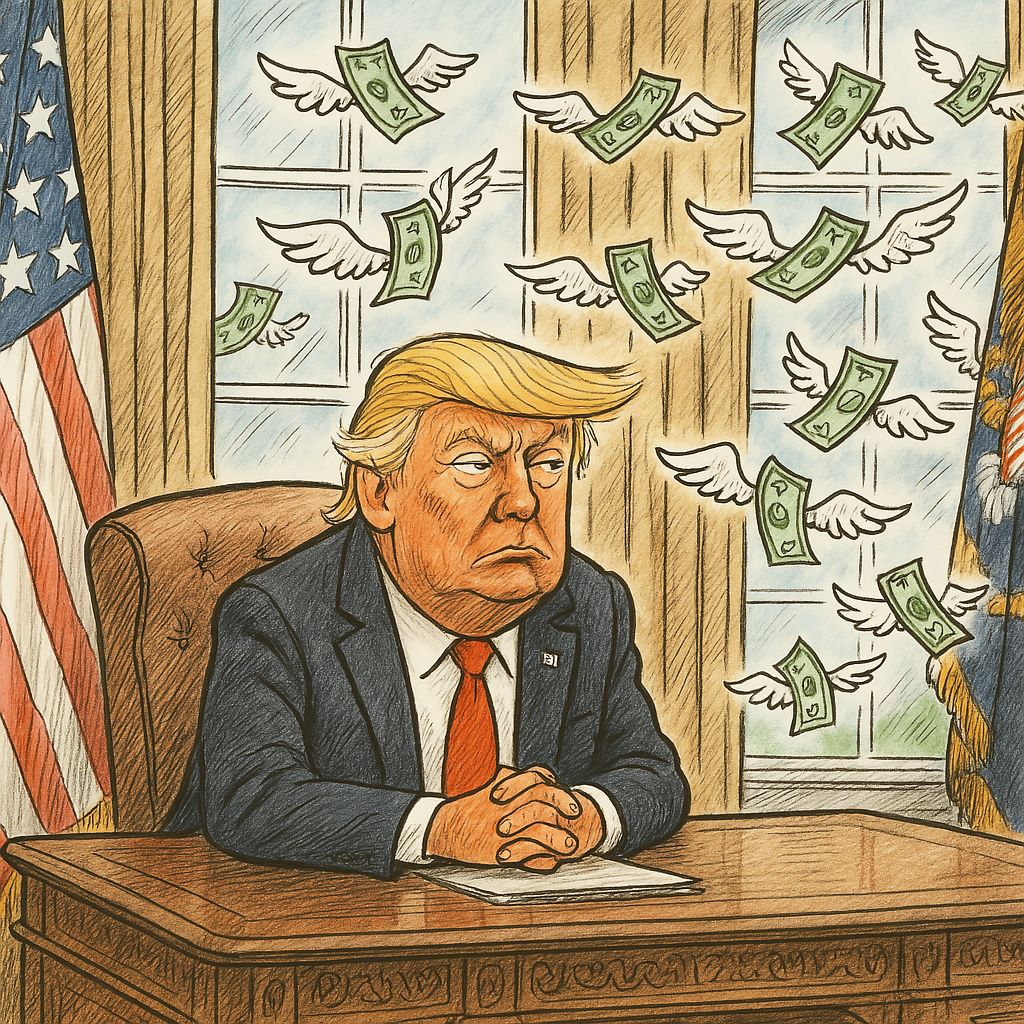The Trump administration’s policies, public statements, and approach to governance have left a profound impact on America’s domestic and international standing. Rather than embodying the values and principles that have historically defined the United States—such as integrity, mutual respect, and diplomacy—this administration has fostered an atmosphere of fear, mistrust, and division. Central to this problematic governance is the administration’s sporadic ambition to exert control over foreign territories, as epitomized by the discussions of acquiring Greenland and other territorial interests. Instead of cultivating a collaborative international presence, such rhetoric has only exacerbated global anxieties and tarnished the United States’ image on the world stage.
One of the most prominent issues arising from stringent policies and the rhetoric of the Trump administration has been economic uncertainty. For the middle and lower classes, this uncertainty looms large. Tariffs, which have been heralded as tools for protecting American industries, are essentially taxes that the American consumer ultimately bears. The misguided belief that these tariffs can offer solutions while ignoring the historical lessons of economic downturns such as the Great Depression has led to misguided policies that threaten job security and exacerbate income inequality. This lack of a conscientious economic strategy, underpinned by mischaracterizations about tariffs, has left many Americans worried for their financial futures.

Further complicating matters is the apparent lack of leadership within Congress. Many elected officials seem to prioritize their own positions and fear repercussions over their responsibilities to their constituents. The troubling reality that members of the House of Representatives and the Senate appear more concerned about the fallout from dissenting opinions within their own party than fulfilling their duty to hold the administration accountable is disheartening. True representation should involve standing up for the American people, yet fear has overshadowed principled leadership.
The principle of accountability is essential for the health of any democracy. If senior members of the administration are not held responsible for potential breaches of national security or egregious misconduct, it sets a dangerous precedent for the entire governmental structure. When those at the top are shielded from consequences, it undermines the integrity of the system and diminishes the motivation for junior officials to act ethically. Leadership is fundamentally about setting an example, and the failure to do so leads to widespread chaos within the ranks.
Moreover, the administration’s approach to international relations has cultivated an atmosphere of distrust. The fear of ridicule and possible dismissal has stifled the voices of advisors who should otherwise provide constructive criticism. In this climate, the collaborative spirit that typified much of American diplomacy is replaced by one of intimidation, effectively dismantling any semblance of moral leadership that the United States once held globally. America risks losing its standing as a beacon of hope and democracy as this lack of responsible leadership resonates overseas.
The Trump administration’s leniency toward Russia, particularly regarding the Ukrainian crisis, has not only risked the stability of Europe but has also empowered adversaries across the globe. The implications of this approach are vast, undermining long-standing alliances, emboldening dictatorial regimes, and threatening the very fabric of international governance. As such, a recalibration of U.S. foreign policy is desperately needed—one that reaffirms America’s commitment to its allies and reinvigorates a strong, principled stance against aggressive authoritarianism. Only through such a commitment can the United States hope to reclaim its role as a leader in the promotion of stability, democracy, and collective security on the world stage.
In conclusion, the Trump administration’s decisions and the behavior of Congress have ushered in an era characterized by economic insecurity, political fear, and reduced international respect. Both the executive branch and legislative bodies appear to be failing the American people, creating ramifications that extend far beyond our borders. The call for a return to responsible governance—one that prioritizes accountability, respects facts over rhetoric, and upholds the values of democracy—is urgent. If America is to restore its leadership role on the global stage, a commitment to mature, respectful discourse and responsible policy-making is imperative. Only then can we work towards ensuring that the principles America stands for are reflected both at home and abroad.
Donald C. Bolduc
Already have an account? Sign In
Two ways to continue to read this article.
Subscribe
$1.99
every 4 weeks
- Unlimited access to all articles
- Support independent journalism
- Ad-free reading experience
Subscribe Now
Recurring Monthly. Cancel Anytime.












COMMENTS